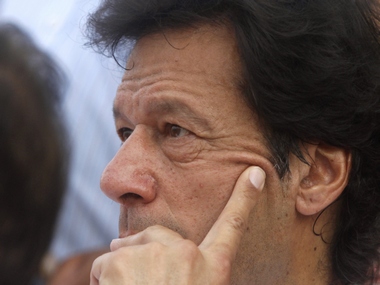Imran Khan says Pakistan’s blasphemy law is necessary. He says it is a British law and thinks in its absence people would be lynched and there would be anarchy, because it is an emotional issue. The stern law therefore also helps those accused of blasphemy. Is he right? Let us consider the law. Only seven cases of blasphemy were registered in undivided India and Pakistan from 1927 to 1986, according to a group of Pakistani Christians. The National Commission for Justice and Peace says that in the last 25 years, 1058 cases of blasphemy were registered. Of the accused 456 were Ahmadis, 449 were Muslims, 132 were Christians and 21 were Hindus. Non-Muslims, who are four percent of Pakistan’s population, are 57 percent of those charged with blasphemy. The other aspect is that by far the majority of cases are filed in Punjab. India and Pakistan share their penal code, which was given to us by Macaulay in the 1860s. Pakistan’s primary law on blasphemy is the same as India’s law, which I wrote about yesterday. [caption id=“attachment_431781” align=“alignleft” width=“380”]  Imran Khan says Pakistan’s blasphemy law is necessary. Reuters[/caption] Pakistan’s section 295-A reads: “Whoever, with deliberate and malicious intention of outraging the religious feelings of any class of the citizens of Pakistan, by words, either spoken or written, or by visible representations insults the religion or the religious beliefs of that class, shall be punished with imprisonment of either description for a term which may extend to ten years, or with fine, or with both.” Both in India and Pakistan, this law is secular and applies to all faiths. The only significant difference in Pakistan’s law is the punishment, which in India is only three years. In 1982, President Ziaul Haq introduced an ordinance that added a section to this law. Section 295-B reads: “Whoever willfully defiles, damages or desecrates a copy of the Holy Qur’an or of an extract therefrom or uses it in any derogatory manner or for any unlawful purpose shall be punishable with imprisonment for life.” It is difficult to see what new element this added which was not covered by 295-A, except that it is specifically a law that protects Muslim sensibility, and the punishment is increased. Under prime minister Muhammad Khan Junejo another addition to the blasphemy law was legislated in 1986. Section 295-C reads: “Whoever by words, either spoken or written, or by visible representation or by any imputation, innuendo, or insinuation, directly or indirectly, defiles the sacred name of the Holy Prophet Muhammad (peace be upon him) shall be punished with death, or imprisonment for life, and shall also be liable to fine.” This also was already covered by the original secular law. And again, here the punishment was increased, this time delivering death. Till this change came, the number of blasphemy cases, to remind the reader, was only seven in 60 years. Therefore Imran Khan is wrong to say the anti-blasphemy law is helpful in keeping peace. The truth is the opposite: Pakistanis have registered so many cases since 1986 because the Islam-specific laws 295-B and 295-C are being deployed. It is often said that property disputes or personal enmity are the reasons for many of these cases, because people can be charged on the basis of hearsay. If this were the case, the law would be misused in India also, which it is not. My view is that it is strong religious sentiment that is the reason why so many Pakistanis are accused of being blasphemers. President Musharraf said he would look into softening the law, but couldn’t. Sherry Rehman tried to introduce a change in the law and failed. Why? I would say that it is not possible for the state to bring change over an unwilling population. Punjab’s Muslims have defied the state on religion before. Emperor Bahadur Shah I (Aurangzeb’s son) was unable to get the Lahore Jama Masjid to recite the khutba because the word “wasi” was added by him to the name of the fourth caliph, Ali. Wasi means heir, and Shias use the word to suggest that Ali was the only rightful heir to prophet Muhammad, not the first three caliphs whom the Sunnis regard as legitimate. The khutba, which is a formal sermon delivered on Friday, proclaimed the emperor as head of state and was therefore important as a sign of his sovereignty. The emperor had an angry showdown with four sullen clerics in his tent, demanding they comply. In Bahadur Shah’s view the additional word was not against any specific Sunni practice. The clerics did not back down and, supported by the Afghans in Punjab, threatened civil war. A crowd of 100,000 civilians gathered to fight the state. In all the rest of India the khutba continued to be read in the prescribed form except Lahore. The emperor had to back down and finally the khutba was read on 2 October, 1711 without the word wasi. There is no chance that the state will be able to undo the two changes in Pakistan’s blasphemy law.
Aakar Patel feels it is strong religious sentiment that is the reason why so many Pakistanis are accused of being blasphemers.
Advertisement
End of Article
Written by Aakar Patel
Aakar Patel is a writer and columnist. He is a former newspaper editor, having worked with the Bhaskar Group and Mid Day Multimedia Ltd. see more


)
)
)
)
)
)
)
)
)



